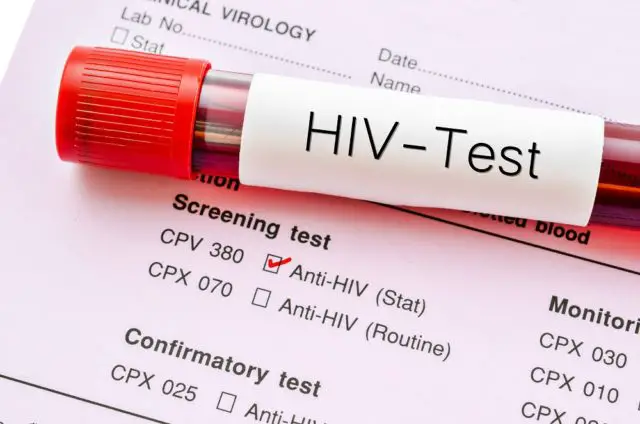After analyzing more than 100 topical cannabidiol (CBD) products sold in stores and online, Johns Hopkins Medicine researchers have found that the CBD content claim on labels is significantly inaccurate and misleading. Furthermore, the results of the study have not only shown that some of these over-the-counter products contain delta-9-tetrahydrocannabinol (THC), the main component of cannabis that causes the “high”, but that this substance it is present in some products where it is expressly stated that they do not contain it.
The study, published on July 20th in the scientific journal JAMA Network Open, has revealed that even some CBD products claim to have therapeutic properties that the US Food and Drug Administration (FDA) has not endorsed. To date, the FDA has only authorized one prescription-only CBD product to treat seizures associated with rare epileptic disorders, and two prescription-only THC products to treat nausea and vomiting caused by chemotherapy and symptoms of loss of appetite and weight loss associated with HIV and AIDS.
“Labels with inaccurate and misleading information, instead of promoting the consumption of products authorized by the FDA, which are safe and effective for the treatment of specific conditions, lead to the consumption of expensive and barely regulated CBD products,” explains one of study authors Dr. Tory Spindle, associate professor of psychiatry and behavioral sciences at Johns Hopkins University School of Medicine.
According to the Center for Integrative and Complementary Medicine of the National Institutes of Health (NIH), CBD and THC are the two best known components of the hemp plant (Cannabis sativa), whose main difference is that the consumption of high doses of THC modifies the psychic activity (causes high), while the consumption of CBD does not produce psychoactive effects.
The Farm Bill of 2018 states that CBD products containing less than 0.3% THC are not classified as illicit substances under national jurisdiction, which has been credited with mass marketing and distribution of such products and thus has made it difficult for the FDA to monitor claims of false therapeutic properties. That said, Dr. Spindle states that “the latest studies that have been carried out show that people who use CBD products that contain small amounts of THC can test positive for cannabis in a conventional drug test.” It is not yet known if this would also be the case with topical CBD products, but this possibility is currently being studied.
In order to conduct the study, the researchers purchased 105 external-use CBD products, including lotions, creams, and patches, both from online stores and from various commercial establishments located in Baltimore, Maryland, between July and August 2020. Products were subjected to analysis using gas chromatography coupled with mass spectrometry, a technique that allows the exact amounts of CBD and THC to be identified.
Results of the study
Among the 105 products analyzed, only 89 (85%) of them mentioned the amount of CBD in milligrams on the label. Of the 89 products, 16 (18%) contained less CBD than the amount declared, 52 (58%) contained more CBD than declared, and 21 (24%) contained the same amount of CBD as declared on the label. While information on CBD content differed considerably, on average, products purchased in stores contained 21% more CBD than the amount declared on the label, and those purchased online contained 10% more CBD than claimed.

Regarding the presence of THC, this substance was detected in 37 (35%) of the 105 products, in quantities that did not exceed the limits established by law. Four (11%) of the 37 products advertised that they did not contain THC, 14 (38%) advertised that they contained less than 0.3% of this substance, and 19 (51%) did not declare any information on the label about the presence of THC.
Among the 105 products, 29 (28%) stated that they had therapeutic properties, mainly to relieve pain and inflammation, and 15 (14%) stated that they had aesthetic properties; p. eg that reduced wrinkles or that hydrated or improved the health of the skin. Forty-nine (47%) of the products analyzed indicated on the label that they did not have FDA authorization, however, the other 56 (53%) made no statement in this regard. Dr. Spindle clarifies that “the FDA has not authorized the marketing of products with CBD to treat any of the conditions declared in the products that were analyzed.
Guarantee consumer safety
“The results of our study show the discrepancy between the information on the labels and the chemical substances contained in CBD products, so it is essential to regulate and monitor the marketing of these to guarantee consumer safety,” says Dr. Ryan Vandrey, lead author of the study and professor of psychiatry and behavioral sciences at Johns Hopkins University School of Medicine.
The authors of the study believe that CBD products must meet quality standards, so that consumers have adequate information and choose them with full knowledge and without false promises about therapeutic or aesthetic properties and benefits. Likewise, they also urge people to consult with their doctor before starting any type of treatment with products that contain CBD.

For those who have experienced shifts in consciousness and know that more peace, joy, and love awaits in a better living environment. A bold shared vision. A living community and hub for innovation. A sustainable ecosystem for living and working. A model for the new future.
